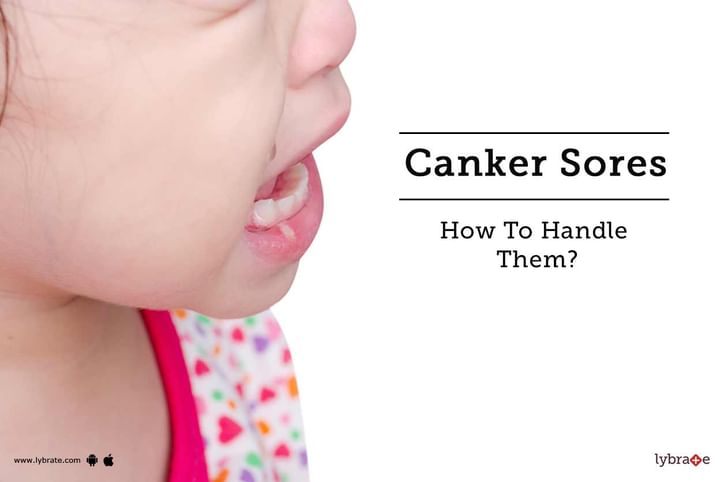Canker Sores - How To Handle Them?
Canker sores are also known as aphthous sores and are the most common type of mouth ulcers. They mostly occur on the inside of the lips or cheek and are mostly whitish or yellowish in colour. The sores are mostly surrounded by inflamed, reddish soft tissue. Canker sores commonly appear between the age of 10 and 20 years. They may create a tingling sensation in the mouth that makes eating, talking or swallowing difficult. In some cases, canker sores may cause general malaise and headache.
Reasons behind canker sores
1. Any kind of viral infection
2. Unhygienic brushing habits, such as not cleaning the mouth often or well enough.
3. Hormonal fluctuations, especially during the menstrual cycle
4. Inadequate rest and sleep
5. Low immunity
6. Stress
7. Food allergy
8. Deficiency of certain vitamins or minerals
9. Some kind of mouth injury
10. Ill-fitted dental appliances such as braces or dentures.
11. Acidic or spicy food.
Types of canker sores and symptoms
Canker sores are mainly of two types
1. Simple canker sores: These may occur twice or thrice in a year and can heal without treatment within a span of 3 to 4 weeks.
2. Complex canker sores: These sores generally appear in the elderly, mostly in those who have a history of frequent sores. These may be accompanied by swelling of lymph nodes, very painful sores, high fever, headache, fatigue and general illness. Inflammation and infection of the ulcers may also occur if not diagnosed and treated on time.
Ways canker sores can be treated
1. Antimicrobial mouth wash to rinse the mouth
2. Antibiotic mouthwashes or oral pills
3. Corticosteroid ointments can be applied on the affected area to reduce the inflammation and promote rapid healing.
4. Drinking milk, consuming yoghurt or ice cream is known to provide relief.



+1.svg)
